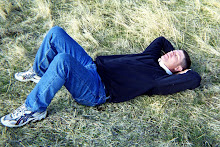
Panic broke out in the damaged vessel as frightened men trying to make it to safety stumbled over dead bodies and debris. Although they had been told to sleep with their life jackets on, many had taken them off because it was hot below decks and the bulky World War II life jackets were uncomfortable. On deck men ran around in the dark. Some jumped into the freezing North Atlantic water.
The four chaplains broke into a supply locker and began handing out life jackets to the men who had none until finally they ran out. Then, one by one, the chaplains took of their own life vests and gave them to soldiers lining up to get them. “It was the finest thing I have seen or hope to see this side of heaven,” said one survivor who witnessed the selfless act.
In the 20 minutes before the ship sank, the chaplains worked to calm the frantic men, help them to safety, and minister to the wounded and dying. The four chaplains linked arms and prayed aloud as the ship slipped beneath the icy water. Only 230 men survived. Among the 672 who died were the four chaplains: Lt. George L. Fox, Methodist; Lt. Alexander D. Goode, Jewish; Lt. John P. Washington, Roman Catholic; and Lt. Clark V. Poling, Dutch Reformed.

No comments:
Post a Comment